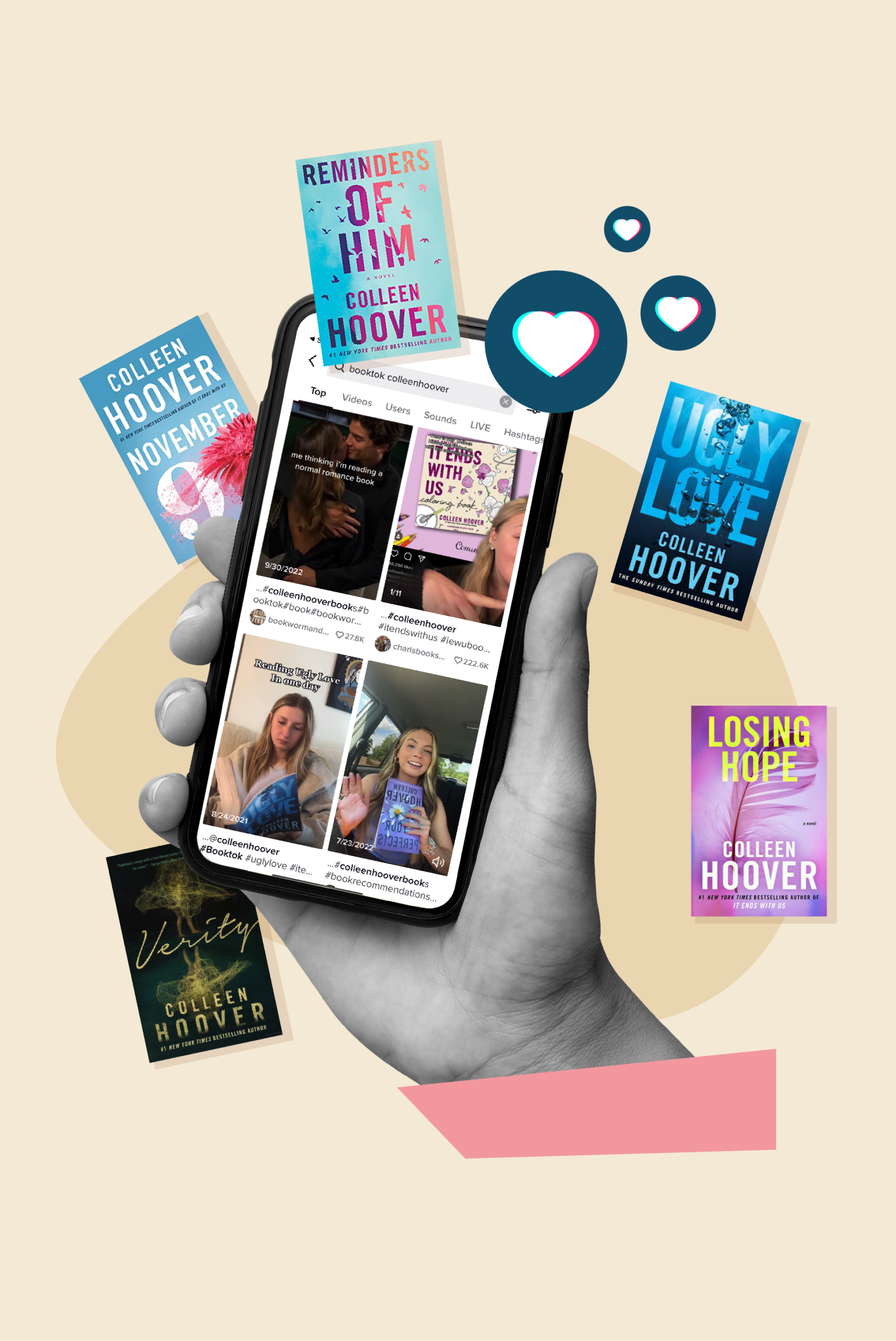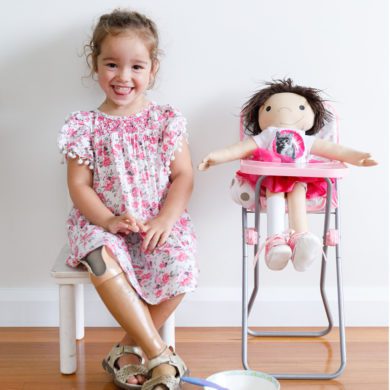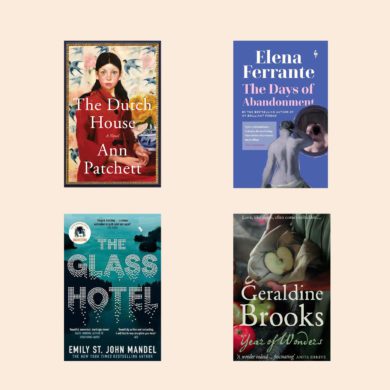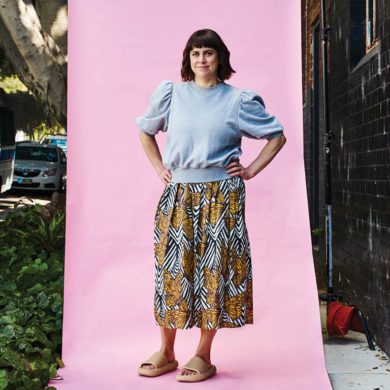Even if you’re not on TikTok, let alone BookTok (the platform’s online community for booklovers), you have probably heard of Colleen Hoover. You might have seen people reading her books over the summer, or heard that Blake Lively is starring in a film adaptation of one of her novels. In the current bestseller list, Hoover has four titles out of the top twenty. Last year, she sold better than the Bible. This stratospheric success is a testament to the power of BookTok.
And it’s not just Colleen Hoover who owes her success to the platform. It might be the case that, partially thanks to BookTok, the book industry in general is on the up. Sarah McConville, the fiction buyer for Australia’s largest book retailer, QBD, says that “TikTok is driving more people of younger generations into stores.” According to Forbes, the US print market was up 9% in 2022, with TikTok cited as a key factor.
That TikTok may change what we read, and how much, is well-established. What is interesting to consider, is whether it will also change how we read. New technologies always influence the way we engage with art. Streaming, for example, brought us not only more and more varied television, but also a new way to consume it through binging.
“New technologies always influence the way we engage with art.”
As long as there have been books, there have been ways to perform reading them. Sometimes, people seek out a like-minded community to share the experience (think writers’ festivals and book clubs). Sometimes, people just want an audience to admire their literary credentials. Bookshelves, for example, are often simultaneous displays of wealth and education.
TikTok, however, is taking the performance of reading in new directions. Not only are people seen to be readers, but they are seen in the act of reading itself. Videos of people turning the final pages have become very popular, particularly where the reader is having an emotional reaction. That’s perhaps why books with sad or traumatic content have performed particularly well (Colleen Hoover’s most popular romance, It Ends With Us, contains graphic sequences of domestic abuse).
I’m not interested in bemoaning a TikTok trend just because it’s new and different. That’s just an elitist way to police “the right kind of reader”. Changes are only troubling if they take us further from what was special about reading in the first place.
And it’s not unique to reading that it’s both an artform you experience in private, and one that you can choose to turn outwards to an audience. Making your Spotify public seems an apt example: you listen to the music on your own, but, for personal branding reasons, you can let other people know you’re doing it.
But I do think that reading, unlike listening to music, or watching a film on your laptop, is private in a more complex way than just by virtue of the fact that you can do it on your own. It’s this more subtle privacy that TikTok threatens.
“It’s not unique to reading that it’s both an art form you experience in private, and one that you can choose to turn outwards to an audience.”
The experience of immersive reading—especially, in my experience, of fiction—is one of taking words on a page and creating images in your mind. It might sound laughably simplistic, but this strikes me as crucial. If two people watch the same movie, they’ll see the same images. They might feel differently about them, but the pictures in their minds are the same. My Anna Karenina, however, looks different to all the Annas who have lived in readers’ minds before me. She’s the entirely unique product of Tolstoy’s imagination and mine.
And, because I have contributed in this way to her creation, I can inhabit her more wholly than characters on a screen. Her voice and thoughts are mine: her internal monologue replaces my own. And when I close the book and sit with it, I am suspended for a moment: not quite me, not quite her.
For all these reasons, reading is still the closest we can get to being—thinking like, feeling like—another person.
If our reading lives increasingly take place on TikTok, we might find that reading is no longer such a potent way to escape our own consciousness. Instead of being a window into another world, it may become yet another mirror.
Like all social media, TikTok relentlessly turns whatever it touches into personal branding. The things we choose to post, like the clothes we choose to wear every day, say something about us and how we’d like to be seen, precisely because we’ve selected them for public viewing. For people who have active profiles on BookTok, they may find that they read a certain book for what it says about them, not for what it can reveal about other people. We might read Sad Girl Books to prove that we are emotionally complex, or classics to prove that we are smart, or short stories to prove that we are independent-minded and uninterested in trends.
“We might read Sad Girl Books to prove that we are emotionally complex, or classics to prove that we are smart.”
BookTok’s constraining influence might even be felt among those who aren’t posting but are just watching videos for the recommendations. TikTok’s user experience is uniquely dominated by its algorithm. Where other social media platforms like Instagram privilege posts by accounts that users have elected to follow, TikTok’s “for you” page displays algorithm-recommended content based on what your peers or people demographically similar to you are watching.
This means that our tastes could become increasingly determined by the very facets of our identity over which we exert minimal control (like our age and nationality). Having narrow tastes, or tastes that are similar to those around you, isn’t necessarily a bad thing. Except when we uniquely rely on novels to expose us to perspectives that are precisely unlike our own.
How depressing to think that we might be confronted always with stories that the algorithm knows we will like; stories that have been vetted by people we already agree with; people who share our cosy corner of the internet.
As long as we are thoughtful, however, about what makes reading unique, we can actively protect our imaginative freedom. We can have all the community and the joy of TikTok (and whatever platforms come after it), and also carve out offline spaces to explore other minds. We can still walk into a bookstore or a library, browse slowly, pick up a book by someone we’ve never heard of, which nobody has told us to read and immerse ourselves, for a moment, in another world. A world that’s precious precisely because it is real only in our imagination, and is therefore impossible to share with anyone else.
Want more stories like this? Sign up to PRIMER’s free weekly newsletter













No Comments